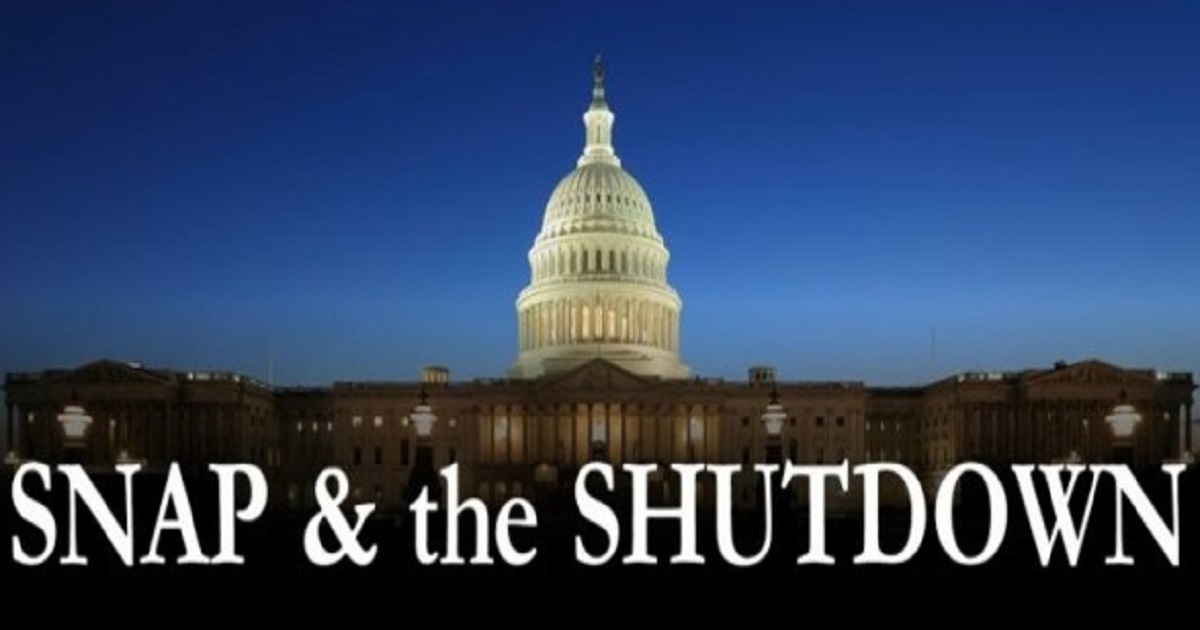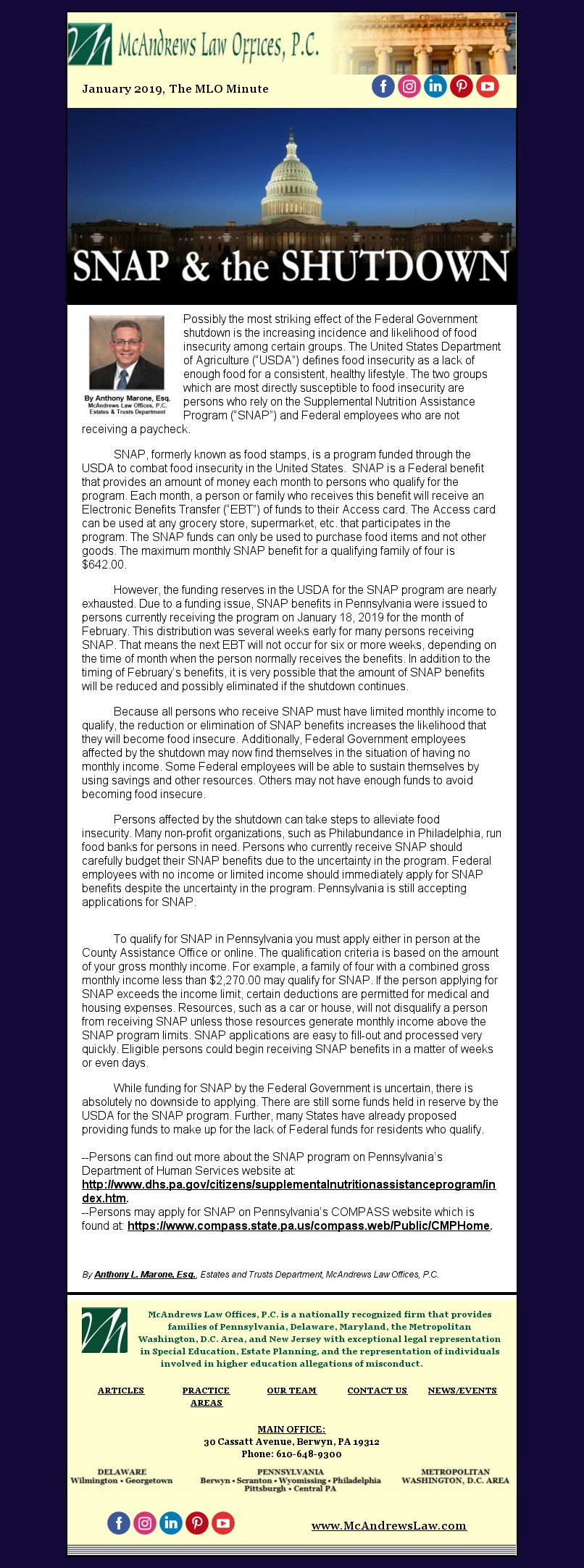January 2019
By Anthony L. Marone, Esq., McAndrews Law Offices, P.C., Estates and Trusts Department
Possibly the most striking effect of the Federal Government shutdown is the increasing incidence and likelihood of food insecurity among certain groups. The United States Department of Agriculture (“USDA”) defines food insecurity as a lack of enough food for a consistent, healthy lifestyle. The two groups which are most directly susceptible to food insecurity are persons who rely on the Supplemental Nutrition Assistance Program (“SNAP”) and Federal employees who are not receiving a paycheck.
SNAP, formerly known as food stamps, is a program funded through the USDA to combat food insecurity in the United States. SNAP is a Federal benefit that provides an amount of money each month to persons who qualify for the program. Each month, a person or family who receives this benefit will receive an Electronic Benefits Transfer (“EBT”) of funds to their Access card. The Access card can be used at any grocery store, supermarket, etc. that participates in the program. The SNAP funds can only be used to purchase food items and not other goods. The maximum monthly SNAP benefit for a qualifying family of four is $642.00.
However, the funding reserves in the USDA for the SNAP program are nearly exhausted. Due to a funding issue, SNAP benefits in Pennsylvania were issued to persons currently receiving the program on January 18, 2019 for the month of February. This distribution was several weeks early for many persons receiving SNAP. That means the next EBT will not occur for six or more weeks, depending on the time of month when the person normally receives the benefits. In addition to the timing of February’s benefits, it is very possible that the amount of SNAP benefits will be reduced and possibly eliminated if the shutdown continues.
Because all persons who receive SNAP must have limited monthly income to qualify, the reduction or elimination of SNAP benefits increases the likelihood that they will become food insecure. Additionally, Federal Government employees affected by the shutdown may now find themselves in the situation of having no monthly income. Some Federal employees will be able to sustain themselves by using savings and other resources. Others may not have enough funds to avoid becoming food insecure.
Persons affected by the shutdown can take steps to alleviate food insecurity. Many non-profit organizations, such as Philabundance in Philadelphia, run food banks for persons in need. Persons who currently receive SNAP should carefully budget their SNAP benefits due to the uncertainty in the program. Federal employees with no income or limited income should immediately apply for SNAP benefits despite the uncertainty in the program. Pennsylvania is still accepting applications for SNAP.





